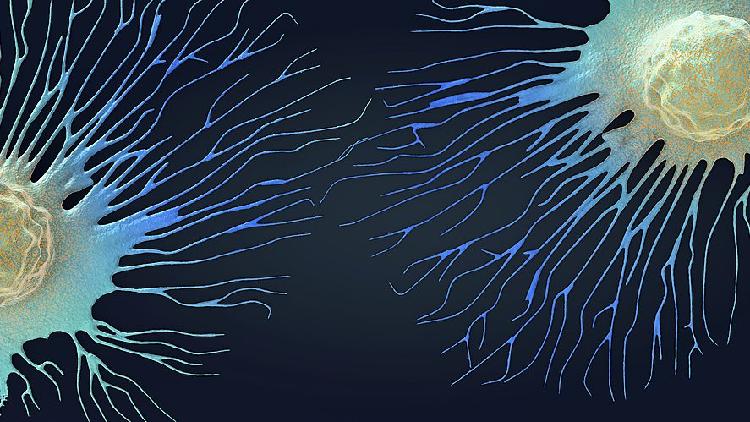Study: New antibody treatment enhances immune response to tumors
Israeli researchers, in collaboration with colleagues from the U.S., have created an antibody-based treatment that enhances the immune system's ability to target cancer cells and inhibit their spread, as stated by Israel's Weizmann Institute of Science (WIS) on Monday.

Scientists leading this initiative at the Weizmann Institute disclosed that a specific type of breast cancer, referred to as triple-negative breast cancer, prompts nearby immune cells to create "molecular bridges." These structures impede immune cells from attacking the tumor, leading to a state of immune suppression.
The research team provided evidence that an antibody treatment, which inhibits the formation of these molecular bridges, can rejuvenate the immune system’s capacity to launch a vigorous assault on cancer cells, stopping tumor progression in mouse models. They noted that while the breast cancer cells exhibit low levels of the protein CD84—critical for building these bridges—they stimulate adjacent immune cells to generate significant quantities of this protein, thus forming bridges that undermine the immune response.
Moreover, the study indicated a correlation between increased levels of CD84 in patients' tumors and reduced survival rates. Tests conducted on genetically modified mice that lack CD84 demonstrated reduced tumor growth, underscoring the role of CD84 within the tumor environment in suppressing T cell activity in the immune system.
When administered bi-weekly to mice with developing breast cancer, the antibody markedly impeded tumor growth and, in certain instances, induced complete recovery. The research team highlighted that the antibody specifically targets cells exhibiting elevated levels of CD84, preserving healthy immune cells that display this protein at lower levels.
The researchers posited that this therapeutic strategy could potentially be utilized across various cancer types by concentrating on the tumor microenvironment instead of the cancer cells themselves.
Frederick R Cook for TROIB News
Discover more Science and Technology news updates in TROIB Sci-Tech












